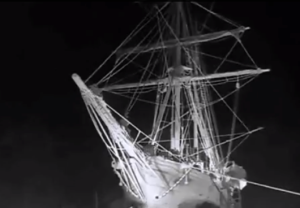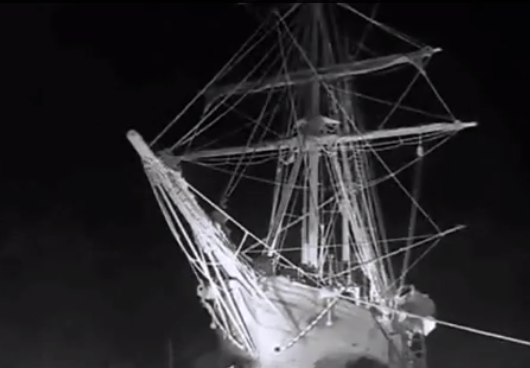Sir Ernest Henry Shackleton was a polar explorer who led three British expeditions to the Antarctic, and one of the principal figures of the period known as the Heroic Age of Antarctic Exploration.
Born in County Kildare, Ireland, Shackleton and his Anglo-Irish family moved to Sydenham in suburban London when he was ten. His first experience of the polar regions was as third officer on Captain Robert Falcon Scott’s Discovery Expedition, 1901–04, from which he was sent home early on health grounds.
Determined to make amends for this perceived personal failure, he returned to Antarctica in 1907 as leader of the Nimrod Expedition. In January 1909 he and three companions made a southern march which established a record Farthest South latitude at 88° 23′ S, 97 geographical miles (112 statute miles, 180 km) from the South Pole, by far the closest convergence in exploration history up to that time. For this achievement, Shackleton was knighted by King Edward VII on his return home.
After the race to the South Pole ended in December 1911 with Roald Amundsen’s conquest, Shackleton turned his attention to what he said was the one remaining great object of Antarctic journeying: the crossing of the continent from sea to sea, via the pole. To this end he made preparations for what became the Imperial Trans-Antarctic Expedition, 1914–17.
Disaster struck this expedition when its ship, Endurance, became trapped in pack ice and was slowly crushed before the shore parties could be landed. There followed a sequence of exploits, and an ultimate escape with no loss of human life, that would eventually assure Shackleton’s heroic status, although this was not immediately evident.
 In 1921, he returned to the Antarctic with the Shackleton-Rowett Expedition, intending to carry out a programme of scientific and survey activities. Before the expedition could begin this work, Shackleton died of a heart attack while his ship, Quest, was moored in South Georgia. At his wife’s request he was buried there.
In 1921, he returned to the Antarctic with the Shackleton-Rowett Expedition, intending to carry out a programme of scientific and survey activities. Before the expedition could begin this work, Shackleton died of a heart attack while his ship, Quest, was moored in South Georgia. At his wife’s request he was buried there.
Away from his expeditions, Shackleton’s life was generally restless and unfulfilled. In his search for rapid pathways to wealth and security, he launched many business ventures and other money-making schemes, none of which prospered. His financial affairs were generally muddled; he died heavily in debt.
Upon his death, he was lauded in the press, but was thereafter largely forgotten, while the heroic reputation of his rival Scott was sustained for many decades.
Later in the 20th century, Shackleton was “rediscovered”, and rapidly became a cult figure, a role model for leadership as one who, in extreme circumstances, kept his team together in a survival story described by polar historian Stephanie Barczewski as “incredible”.
Support Us: Check out our recommended products on Amazon.

